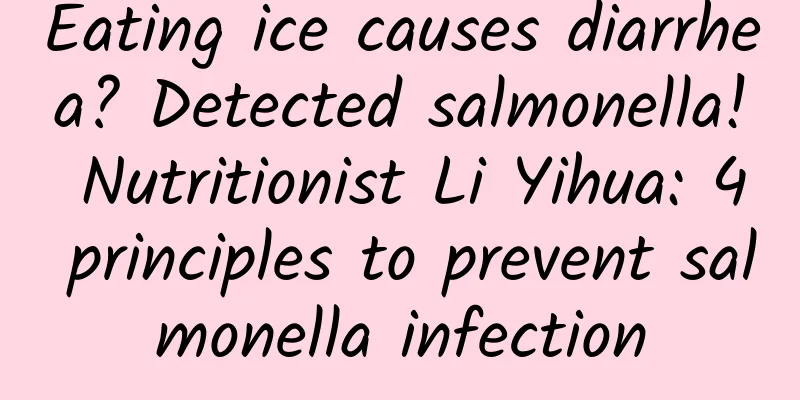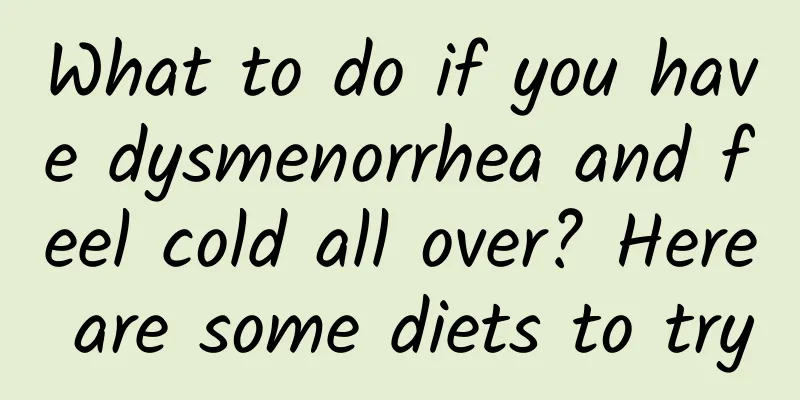Eating ice causes diarrhea? Detected salmonella! Nutritionist Li Yihua: 4 principles to prevent salmonella infection

|
Recently, more than 20 people went to an ice cream shop in Kaohsiung to eat ice cream and developed symptoms of vomiting and diarrhea and were rushed to the hospital. Currently, the Health Bureau has confirmed that it conducted an inspection and sampling the day after receiving the report and found that the Babao ice cream tested positive for Salmonella. What exactly is Salmonella? What are the symptoms? How to prevent it? Let’s listen to nutritionist Li Yihua’s analysis. What is Salmonella?Characteristics: It is a facultative anaerobic Gram-negative bacterium, widely present in the animal kingdom, a zoonotic infectious disease, and can survive between 4-48 degrees, but is not heat-resistant. It can be sterilized by boiling for 5 minutes or heating at 60 degrees for 20 minutes. Its growth can be inhibited in an acidic environment (pH <4.5)! What are the symptoms of salmonella infection?Symptoms: Symptoms usually occur within 4-48 hours after consumption. The shorter the onset time, the more severe the symptoms are usually! In general, there are only symptoms such as diarrhea, abdominal pain, fever (high fever 38-40 degrees), nausea, vomiting, chills, etc. Some people may have bloody stools, which will last for about 2-3 days before recovery. During this period, you need to pay attention to replenishing water and electrolytes! Special circumstances: Elderly people over 50 years old, newborns, children under five years old and patients with certain diseases may develop bacteremia due to weak immunity, which may turn into sepsis and death in severe cases. Salmonella mainly occurs in contaminated high-protein foods, so what you often hear about are raw or undercooked eggs and their products, such as: undercooked eggs (such as hot spring eggs, soft-boiled eggs), foods containing raw eggs (tiramisu, mayonnaise, ice cream), etc. Common foods contaminated with SalmonellaSalmonella mainly occurs in contaminated high-protein foods, so what you often hear about are raw or undercooked eggs and their products, such as: undercooked eggs (such as hot spring eggs, soft-boiled eggs), foods containing raw eggs (tiramisu, mayonnaise, ice cream), etc. However, if dairy products, meat or some soy products are not stored properly and come into contact with infected pets or disease vectors such as flies and cockroaches, they can easily cause food poisoning due to incomplete heating! Four principles for preventing salmonella infection1. Do not mix raw and cooked utensils to avoid cross contamination. 2. Heat the food thoroughly. Since Salmonella itself is not heat-resistant, it can be sterilized by simply heating it thoroughly (boiling for 5 minutes or heating at 60 degrees for 20 minutes). 3. Pay attention to hand hygiene and remember to wash and disinfect your hands before meals. 4. Pay attention to the hygiene of the dining environment. The kitchen should be kept away from cats, dogs, cockroaches, flies and other vectors. Remember to wash the food properly. How to determine if it is food poisoning?The definition of food poisoning is that two or more people (only one person is needed to be infected with botulism) eat the same food and develop similar symptoms, and the same type of cause of disease is detected in the food sample or the patient's vomit or feces. This can be considered a food poisoning incident! As a reminder, next time you eat, if you feel unwell, you can also ask your relatives and friends who are traveling with you whether they have similar symptoms. If so, it is recommended to seek medical attention immediately and keep any remaining food, vomit and excrement. The doctor will inform you after making a judgment. |
Recommend
Can I still have sex if I have cervical erosion? How should I treat cervical erosion?
Cervical erosion is the most common inflammation ...
Experts briefly introduce the common symptoms of ovarian cysts
For female friends, the ovary is a very important...
What are the hazards of uterine fluid accumulation?
If female friends have uterine effusion and do no...
A brief analysis of which female friends are prone to adnexitis
I believe that many female friends are familiar w...
Ectopic pregnancy can also be treated conservatively
Li Xiang is 30 years old this year. She usually h...
When is the best time for medical abortion? What are the precautions for medical abortion?
The best time for medical abortion is in the earl...
What complications may occur after abortion? How to deal with them?
Do you know that artificial abortion, also known ...
Which department should I go to for vulvar leukoplakia and perianal itching? What medicine should I use for anal leukoplakia and itching?
Vulvar leukoplakia and perianal pruritus are comm...
Three common methods of detecting ectopic pregnancy
Ectopic pregnancy means that the fertilized egg d...
An ugly complexion may indicate gynecological disease
It is women's nature to love beauty, but a ha...
Starving to lose weight? Before dieting, learn to eat smart
Balanced nutrition Many people use starvation die...
Will abnormal vaginal discharge affect menstrual delay?
Will abnormal leucorrhea affect delayed menstruat...
Detection of pelvic inflammatory disease is important for treatment
Pelvic inflammatory disease is a disease that has...
What bacteria cause bacterial vaginosis
Bacterial vaginosis is often caused by an imbalan...
Analyze the symptoms of various types of adnexitis
In life, adnexitis is a very common disease, and ...









